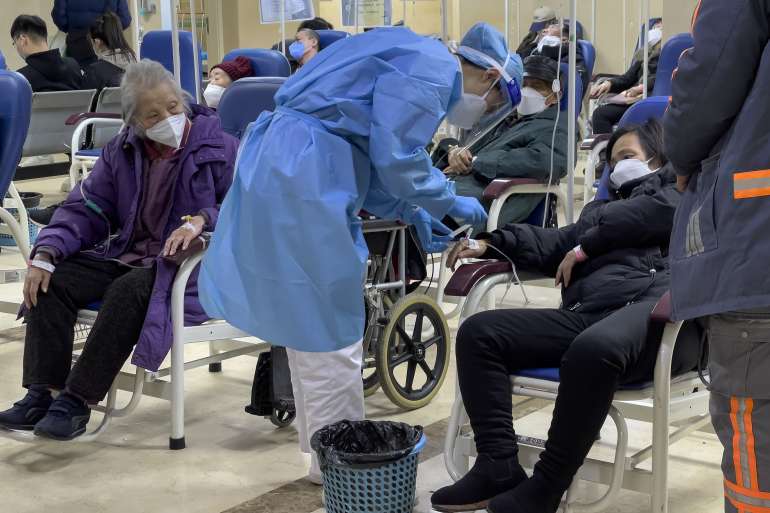China continues to block efforts to determine Covid’s origins, lawmakers say

Other U.S. agencies, though, have said they think it was probably due to natural transmission from animals to humans.
“We have so few facts that, inevitably, different agencies are going to arrive at different conclusions,” Himes said.
Himes is the ranking Democrat on the House Intelligence Committee. His view was shared by the panel’s chair, Rep. Mike Turner (R-Ohio).
“There’s no direct evidence, we don’t have China admitting it, we don’t have Wuhan Lab handing these things over,” Turner said, referring to the city that is home to several laboratories and where the virus first circulated in late 2019.
Sen. Mark Warner (D-Va.) also blamed China’s refusal to be open and honest about Covid-19 for continuing questions about its origin.
“If this virus had originated virtually anywhere else, we would have had world scientists there,” he said on “Fox News Sunday.”
He also told host Shannon Bream: “You know, at the end of the day, we’ve got to keep looking, and we’ve got to make sure, in terms of future pandemics, that we can have access to where the source of these diseases originate a lot earlier on.”
Debate over Covid-19’s origins has political implications, with the latest reports fueling demands in conservative circles for China to be punished in one way or another for unleashing it. More than a million deaths in the United States have been attributed to the coronavirus; the worldwide total is approaching 7 million.
National Security Council spokesperson John Kirby said last Monday that the U.S. government still had not reached a consensus on how the pandemic started. President Joe Biden did not address the subject last week.
Former Secretary of State Mike Pompeo said the Energy Department report supported the view he took back in 2020 when he was part of the Trump administration.
“Make no mistake, this is a Chinese virus that came from the laboratory,” he said on “Fox News Sunday.”
Pompeo also asserted that U.S. funding for international research might have played a part in the development of the virus — a theory that Anthony Fauci, the now-retired top pandemic medical adviser, rejected when it first surfaced — and that China’s leadership had made it difficult to know “the full scope” of what occurred by destroying documents and censoring journalists.
A different perspective on the various origin theories came from Leana Wen, former health commissioner of the city of Baltimore and a professor at George Washington University.
“I think at this point there is circumstantial evidence on both sides,” she said on CNN’s “Fareed Zakaria GPS,” “but there is one thing that the intelligence community has found and, in fact, has been unanimously saying since early on, which is that this was not intentional. This was not a bio weapon or something that China or scientists or whatever politicians or political leaders were trying to do.”